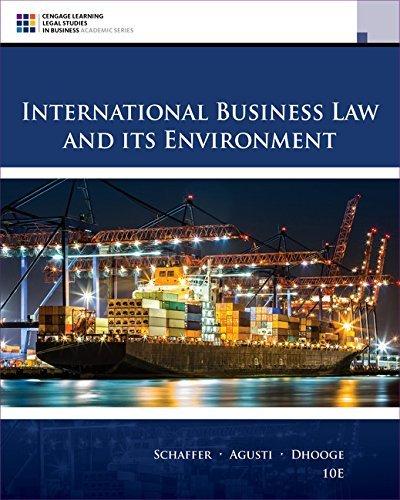Plaintiff Tandrin Aviation Holdings Ltd. (Tandrin) agreed to sell a Bombardier executive jet aircraft to Aero Toy
Question:
Tandrin filed a lawsuit against ATS for breach of contract. ATS claimed that its contractual obligations were excused by a force majeure clause contained within the agreement. The clause read as follows:
7.17 Force Majeure. Neither party shall be liable to the other as a result of any failure of, or delay in the performance of, its obligations hereunder, for the period that such failure or delay is due to: Acts of God or the public enemy; war, insurrection or riots; fires; governmental actions; strikes or labor disputes; inability to obtain aircraft materials, accessories, equipment or parts from vendors; or any other cause beyond Seller's reasonable control. Upon the occurrence of any such event, the time required for performance by such party of its obligations arising under this Agreement, shall be extended by a period equal to the duration of such event.
ATS claimed that the "unanticipated, unforeseeable and cataclysmic downward spiral of the world's financial markets" triggered the force majeure clause, thereby postponing the time for ATS to complete the purchase and potentially affecting the price at which ATS should be entitled to purchase the aircraft.
1. On what basis did the court refuse to enforce the force majeure clause to excuse ATS' failure to perform?
2. Should economic or market circumstances ever serve as a basis for failure to perform contractual duties? Why or why not? Under what circumstances should such circumstances excuse performance?
3. If you were ATS' attorney, how would you have drafted the force majeure clause to excuse performance in the event your client could not obtain financing?
Fantastic news! We've Found the answer you've been seeking!
Step by Step Answer:
Related Book For 

International Business Law And Its Environment
ISBN: 9781305972599
10th Edition
Authors: Richard Schaffer, Filiberto Agusti, Lucien J. Dhooge
Question Posted:





